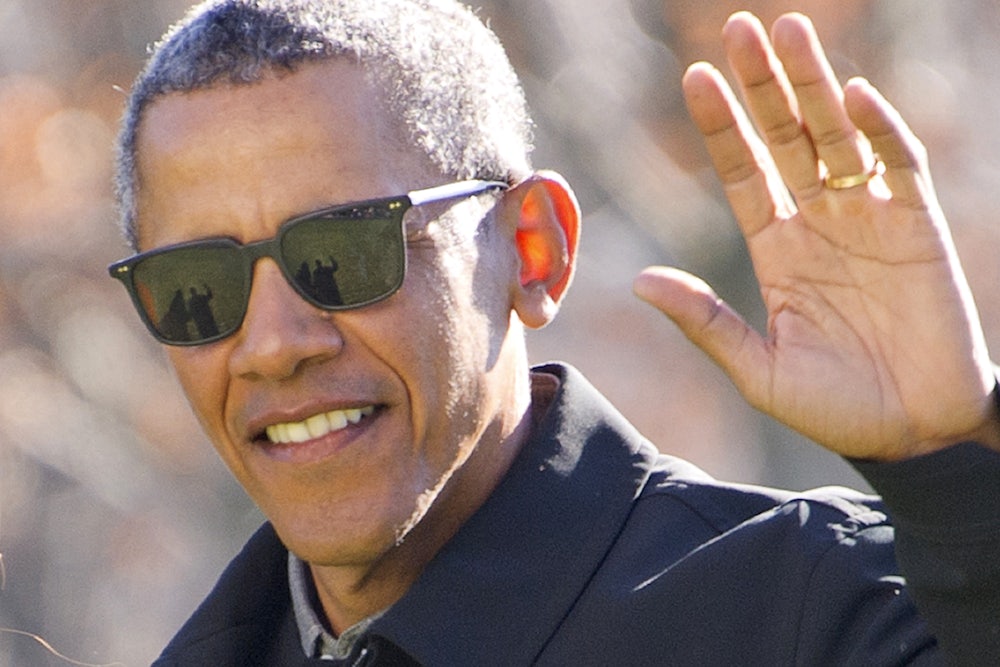When Barack Obama leaves the White House one year from now, he’ll be 55 years old, just a few months older than Bill Clinton was when he launched the Clinton Foundation in 2001.
What Obama ultimately chooses to do with his relative youth and vitality will be subject to the whims of political and family fortune, but he’s provided many hints about how he hopes his post-presidency shakes out, and he’s likely to provide more in his final State of the Union address on Tuesday night.
Obama obviously wants to be succeeded by a Democratic president. Because of the country’s current political alignment, Democratic victory in November is the only way to guarantee continued progress expanding health coverage, holding medical costs down without gutting public insurance, limiting the growth of inequality through downward income distribution, and so on. To that end, the president has promised to “leave it all out on the field” in 2016, to secure and build upon as many of his domestic achievements as he can.
Clearly frustrated by the country’s epidemic of gun massacres, Obama has dedicated himself in recent weeks to building a liberal counterweight to the National Rifle Association, in the hope of slowing the spread of weapons of mass killing. Two years ago, in the aftermath of the Trayvon Martin shooting, he launched the My Brother’s Keeper initiative as a bulwark against the risks of economic privation and violence that face black families, and black men in particular. He has singled out our governing institutions and campaign-finance system for special opprobrium, touting ideas like disclosure and even quasi-compulsory voting in order to shake the most perverse incentives out of politics.
These ambitious goals suggest Obama will seek to be less “above the fray” than most former presidents, converting the enduring good will of the Democratic Party base into grassroots movements for changing policy—not just at the margins, but at its most contentious core.
Both because his legacy goals are ambitious, and because they’re rooted in deep political and social contention and dysfunction, it makes sense that Obama aides have been previewing a final State of the Union address that breaks from recent tradition. Indeed, to render his speech as yet another litany of small-bore policy requests for Congress to ignore would be whistling loudly past the graveyard.
To the end of breaking from custom, the White House has already announced it will leave one seat in the First Lady’s box empty, as a symbol of the 30,000 people killed by guns each year in the United States. Beyond the limits of high-minded symbolism, though, Obama is blessed with a wealth of material that underlines the stakes of both status-quo politics and the full consolidation of Republican power that would result from a GOP presidential victory next year.
The Republican presidential primary debate has alternated between a strong consensus that one of America’s biggest problems is too much downward distribution of income, and the growing sentiment that the country should be less welcoming (if not outwardly hostile) to immigrants and refugees. The party as a whole is wedded to policy convictions that can’t win national elections without the interference of economic or foreign-policy crises, and Obama can use that fact to leave Republicans sitting on their hands through applause lines about religious tolerance, civil equality, and poverty protection.
Or, if he wants to test a radically different model, he could borrow from his appearance at the House GOP’s annual retreat six years ago, where he challenged Republicans to debate in better faith, rather than with an eye toward riling up elements of the electorate that ought not be pandered to.
I’m not suggesting that we’re going to agree on everything, whether it’s on health care or energy or what have you, but if the way these issues are being presented by the Republicans is that this is some wild-eyed plot to impose huge government in every aspect of our lives, what happens is you guys then don’t have a lot of room to negotiate with me. I mean, the fact of the matter is, is that many of you, if you voted with the administration on something, are politically vulnerable in your own base, in your own party. You’ve given yourselves very little room to work in a bipartisan fashion because what you’ve been telling your constituents is, this guy is doing all kinds of crazy stuff that’s going to destroy America.
Trumpism is an outgrowth of the kind of propaganda right-wing politicians and media have foisted on Americans for the entirety of Obama’s presidency. And counteracting it for the public good is central to Obama’s post-presidential aspirations. Tuesday’s State of the Union is a great opportunity to get a jump on that project.
